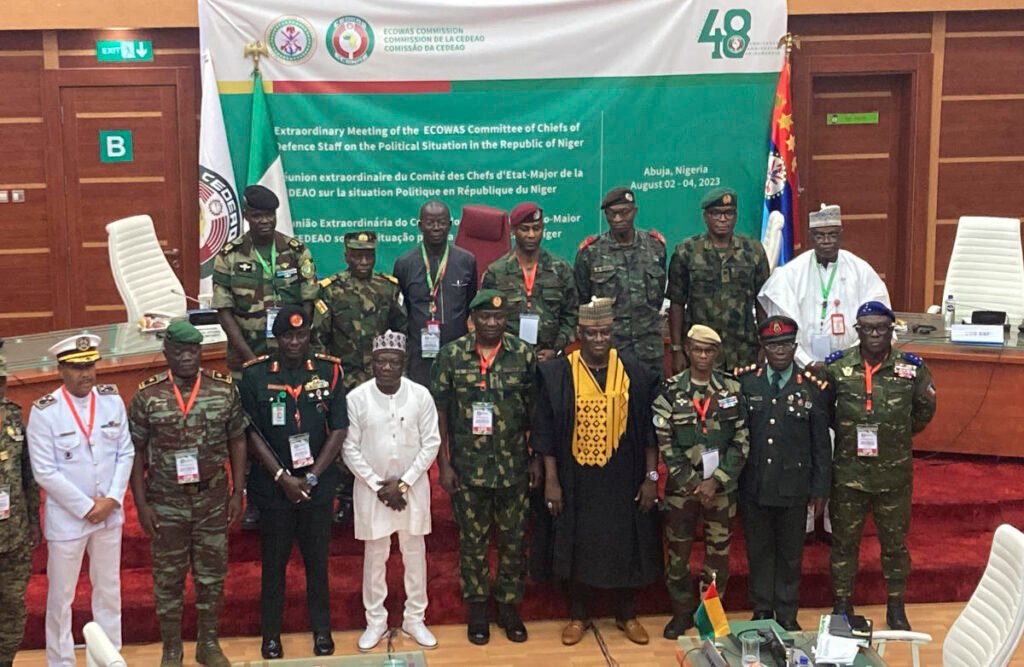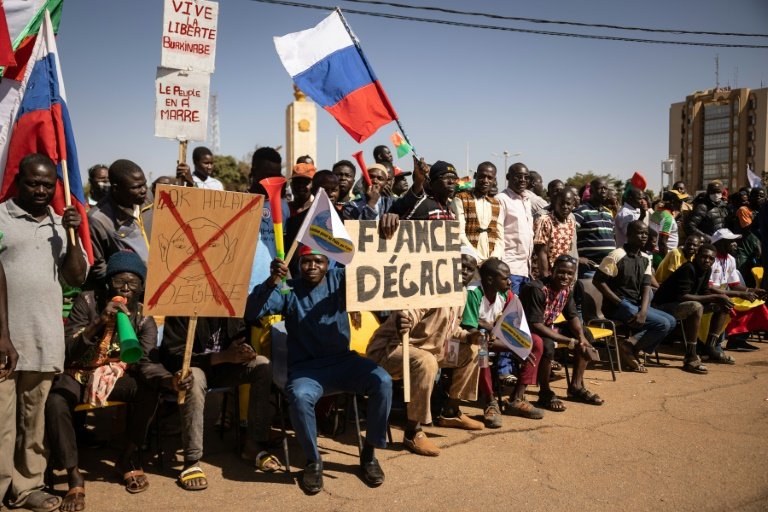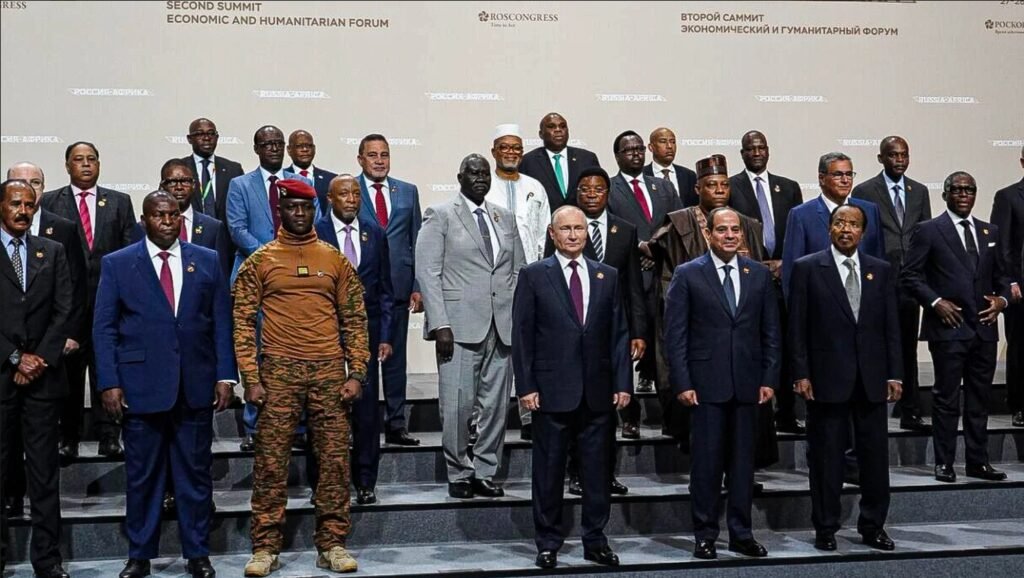West Africa finds itself teetering on the edge of a wider regional conflict, driven by the recent coup in Niger and the escalating tensions surrounding it. The Economic Community of West African States (ECOWAS), under the leadership of Nigerian President Bola Tinubu, responded to the July 26 military takeover in Niger by imposing sanctions and delivering a stern ultimatum. ECOWAS demanded that the ousted president, Mohamed Bazoum, be reinstated or face military intervention, signaling a more aggressive stance than seen in past regional coups in Mali, Guinea, and Burkina Faso. However, this response has done little to calm the rising instability, and the region faces an increasing risk of broader conflict.

ECOWAS’ Tough Stance and Regional Pushback
The decision by ECOWAS to issue a military threat against the Nigerien junta has only deepened the crisis. The military governments of Mali and Burkina Faso, both of which had previously expelled French forces and aligned themselves with Russia, responded to the ultimatum by stating that any military intervention in Niger would be treated as an act of war against their own countries. Guinea has also expressed solidarity with Niger’s new military rulers, further complicating the situation. The alliance between these nations represents a significant shift in regional dynamics, with an emerging bloc openly rejecting Western influence in favor of new alliances with Russia.
ECOWAS has continued to increase pressure on Niger by imposing sanctions, halting trade, and cutting off electricity supplies. Despite these measures, the junta in Niger remains resolute, showing no signs of yielding to ECOWAS’ demands. As Niger celebrated 63 years of independence from France, pro-government rallies in the capital, Niamey, were filled with anti-French and pro-Russian slogans. The demonstration was supported by the M62 movement, which formed in response to economic hardship and corruption scandals within Niger’s previous government. Many protesters voiced their frustration with France, viewing the former colonial power as complicit in the region’s struggles.
Broader Regional Impacts: The Case of Senegal
The instability in Niger and its potential for triggering wider conflict is not limited to the country itself. There is growing concern that the unrest in the Sahel could spill over into other West African nations, including Senegal, which had been considered a beacon of stability in the region. However, Senegal has its own internal struggles. Recent mass protests, driven by high youth unemployment and political corruption, have rocked the country, leading to the arrest of opposition leader Ousmane Sonko and the banning of his political party, PASTEF. The government’s harsh crackdown on dissent, including the banning of the social media platform TikTok, highlights its fear of growing domestic unrest.
Senegal’s government, which had announced its intention to participate in any ECOWAS-led intervention in Niger, is increasingly concerned about the potential for similar uprisings within its own borders. Anti-French sentiment, which has been on full display across the Sahel, could easily find resonance in Senegal, particularly among the country’s disillusioned youth. The risk of widespread unrest within Senegal underscores the fragile nature of what has been labeled as one of West Africa’s most stable democracies.
Nigeria’s Dilemma
For Nigerian President Bola Tinubu, the situation presents a complex challenge. Nigeria, the largest economy in Africa, is facing its own internal crises, with widespread poverty, unemployment, and a decade-long Islamist insurgency in the northeast led by Boko Haram. Tinubu’s government recently enacted a controversial cut to a popular fuel subsidy, a decision that has sparked opposition from the Nigerian labor movement. The move, designed to stabilize Nigeria’s fragile economy, echoes the triggers of past revolutions in Tunisia, Egypt, and Sudan, where subsidy cuts led to mass uprisings.
Any military intervention in Niger would carry immense risks for Nigeria. The country’s volatile political environment could be further destabilized by such an action, potentially sparking mass protests and deepening the existing social unrest. The prospect of a major social explosion in Nigeria, the most populous country in Africa and home to one of the continent’s largest working classes, would have significant implications for the entire region. The instability in Niger is part of a broader pattern of coups and counter-coups in countries where local bourgeoisies remain weak and heavily dependent on foreign imperialism, leading to the frequent rise of Bonapartist regimes, often led by junior military officers, as seen in Burkina Faso.

A Painful Choice for Regional Leaders
The attempts by ECOWAS and its Western allies to regain control over Niger pose a painful dilemma for regional leaders like Tinubu and Senegalese President Macky Sall. A failure to act after making bold threats could undermine their credibility and encourage further instability across the region. On the other hand, a military intervention risks sparking wider social unrest and could lead to a conflict that spirals out of control, potentially igniting a broader regional war.
With the West already heavily engaged in the conflict in Ukraine, it is unlikely that significant military support would be available for an intervention in Niger. As a result, ECOWAS leaders may attempt to intensify sanctions and diplomatic pressure while avoiding direct military confrontation. However, the rapidly evolving situation may soon be beyond their control.
A Region on the Brink
As the situation in West Africa continues to deteriorate, it is clear that the region is on the verge of further explosive events. The coup in Niger and the broader anti-imperialist sentiment sweeping across the Sahel are challenging the long-standing influence of Western powers in the region. At the same time, the rise of Russia as a new ally for many of these governments marks a significant shift in global geopolitics. As the conflict unfolds, the world will be watching closely to see whether West Africa’s leaders can navigate this crisis or whether the region will be plunged into further chaos.


